Understanding the Benefits of Stainless Steel Ball Valves for Industrial Applications
In today's industrial landscape, the choice of valves plays a critical role in ensuring operational efficiency and reliability. Among the various types of valves available, stainless steel ball valves have emerged as a top choice for many applications due to their unique advantages. These valves are designed to provide excellent durability, resistance to corrosion, and ease of operation, making them ideal for handling various fluids and gases in harsh environments. Understanding the numerous benefits of stainless steel ball valves is essential for industries seeking to optimize their processes and reduce maintenance costs. This article will delve into the key advantages of stainless steel ball valves, highlighting their effectiveness and suitability for a range of industrial applications, ultimately illuminating why they are considered the best option for many operational needs.

Benefits of Stainless Steel Ball Valves in High Pressure Applications
Stainless steel ball valves are increasingly favored in high-pressure industrial applications due to their superior strength and resilience. According to a recent report by the Market Research Future, the global valve market is projected to grow by 5.2% annually, driven largely by demand in sectors requiring high-pressure solutions, such as oil and gas and chemical processing. The corrosion resistance of stainless steel ensures that these valves maintain performance even in harsh environments, thereby reducing the frequency and cost of maintenance.
In high-pressure scenarios, the reliability of valve sealing is crucial. Stainless steel ball valves provide an excellent sealing capability and can handle pressures exceeding 10,000 psi depending on the design. A study from the American Society of Mechanical Engineers (ASME) highlights that failures in valve sealing can lead to significant safety hazards and economic losses, reinforcing the critical role robust materials like stainless steel play in maintaining system integrity. The ability of these valves to operate effectively under extreme conditions makes them a preferred choice among engineers when designing high-pressure systems.
Understanding the Benefits of Stainless Steel Ball Valves in High Pressure Applications
This chart illustrates the advantages of Stainless Steel Ball Valves in various high-pressure applications, highlighting their key benefits such as corrosion resistance, durability, temperature tolerance, pressure handling, low leakage, maintenance, and versatility. Each benefit is rated based on its importance in industrial settings.
Key Advantages of Stainless Steel Ball Valves Over Other Valve Types
Stainless steel ball valves have become increasingly popular in industrial applications due to their numerous advantages over other valve types. One of the primary benefits is their excellent resistance to corrosion. According to a report by the International Zinc Association, stainless steel provides a robust barrier against aggressive chemicals and extreme temperatures, making these valves highly suitable for demanding environments. This durability results in lower maintenance costs and a longer lifespan, which can save industries significant expenses over time.
Another key advantage of stainless steel ball valves is their superior flow control. The design of ball valves allows for quick opening and closing, enabling them to regulate flow effectively and efficiently. The American Society of Mechanical Engineers highlights that the flow coefficient (Cv) for stainless steel ball valves is often higher than for other valve types, ensuring reduced pressure drops and improved system performance. Industries that rely on precise flow control, such as chemical processing and water treatment, benefit immensely from this feature.
Tips: When selecting stainless steel ball valves for your application, consider the specific chemical compatibility and temperature ranges to ensure optimal performance. Additionally, always consult the manufacturer's guidelines for installation and maintenance to maximize the longevity of your valves. Regular inspections can help identify wear and mitigate unexpected failures, thus enhancing system reliability.
Material Properties of Stainless Steel That Enhance Valve Performance
 Stainless steel ball valves are increasingly favored in industrial applications due to their unique material properties, which enhance performance and longevity. The inherent corrosion resistance of stainless steel, particularly in environments exposed to moisture and aggressive chemicals, significantly reduces the risk of valve degradation.
Stainless steel ball valves are increasingly favored in industrial applications due to their unique material properties, which enhance performance and longevity. The inherent corrosion resistance of stainless steel, particularly in environments exposed to moisture and aggressive chemicals, significantly reduces the risk of valve degradation.
According to a report by the International Journal of Engineering Research and Applications, stainless steel valves can withstand pressures of up to 2500 psi, making them ideal for high-pressure applications commonly found in the oil and gas industry.
Another advantage of stainless steel is its temperature tolerance. Research by the American Society of Mechanical Engineers (ASME) indicates that stainless steel ball valves can operate efficiently in temperatures ranging from -425°F to 800°F. This broad range allows for versatile use in various industrial processes, from cryogenic settings to high-temperature applications in manufacturing. Furthermore, stainless steel’s excellent durability and low maintenance requirements lead to decreased downtime and operational costs, making it a preferred choice among engineers and plant managers.
Impact of Stainless Steel Ball Valves on System Efficiency and Longevity
Stainless steel ball valves play a critical role in enhancing system efficiency and longevity in various industrial applications. Their unique design reduces pressure drop and minimizes flow turbulence, which can significantly improve the operational efficiency of fluid handling systems. According to industry reports, the global industrial valve market is projected to reach $121.67 billion by 2024, emphasizing the increasing demand for reliable and efficient solutions like stainless steel ball valves. These valves are not only resistant to corrosion and wear but also withstand high temperatures and pressures, making them ideal for challenging environments.

Recent advancements in valve technology, exemplified by innovations in food-grade equipment, highlight the potential for durable solutions that cater to specific industry needs. Such developments suggest that the adoption of high-quality stainless steel valves is essential for maintaining system integrity and extending operational lifespans.
Moreover, with the pressure reducing valve market anticipated to grow from $3.87 billion in 2024 to $5.67 billion by 2033, the focus on efficient and durable materials is evident. As industries continue to prioritize efficiency, stainless steel ball valves will remain integral to optimizing performance and ensuring long-term reliability across various applications.
Cost-Effectiveness of Using Stainless Steel Ball Valves in Industrial Settings
Stainless steel ball valves are increasingly being favored in industrial applications due to their cost-effectiveness and long-term durability. One of the primary advantages of these valves is their resistance to corrosion, which significantly reduces maintenance costs over time. Unlike other materials that may require frequent replacement or repairs in corrosive environments, stainless steel maintains its integrity, ensuring fewer disruptions in operations. This reliability leads to reduced labor and replacement parts costs, ultimately contributing to enhanced productivity.
Moreover, the price of stainless steel ball valves is often justified by their longevity and performance advantages. Though the initial investment may be higher than for alternatives such as plastic or carbon steel valves, the lifespan and efficiency they provide make them a more economical choice in the long run. This durability translates to lower total cost of ownership, making stainless steel ball valves an ideal solution for industries where downtime and maintenance can lead to significant financial losses. Thus, choosing stainless steel ball valves is not only a smart engineering decision but also a financially sound strategy for industrial enterprises.
Related Posts
-
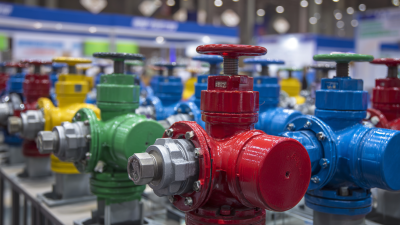
Exploring Ball Valves Industry Trends at the 138th Canton Fair 2025 in China
-

How to Choose the Right Ball Valves for Your Industrial Applications
-
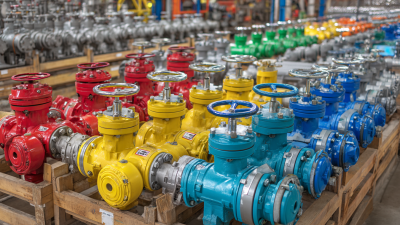
How to Choose the Right Ball Valve for Your Application
-
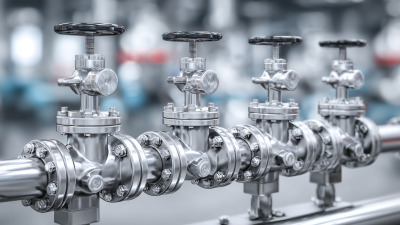
Understanding the Essential Role of Fittings Valves in Modern Fluid Systems
-
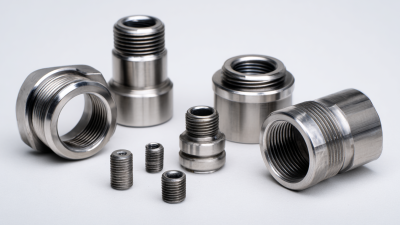
How to Choose the Right Stainless Steel Fittings: Key Factors and Industry Insights for Optimal Performance
-
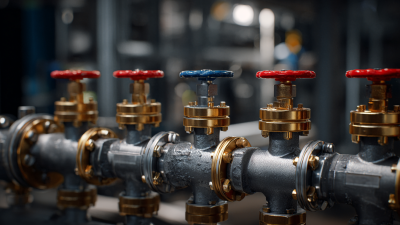
Essential Guide to Choosing the Right Valve Fittings for Optimal Performance